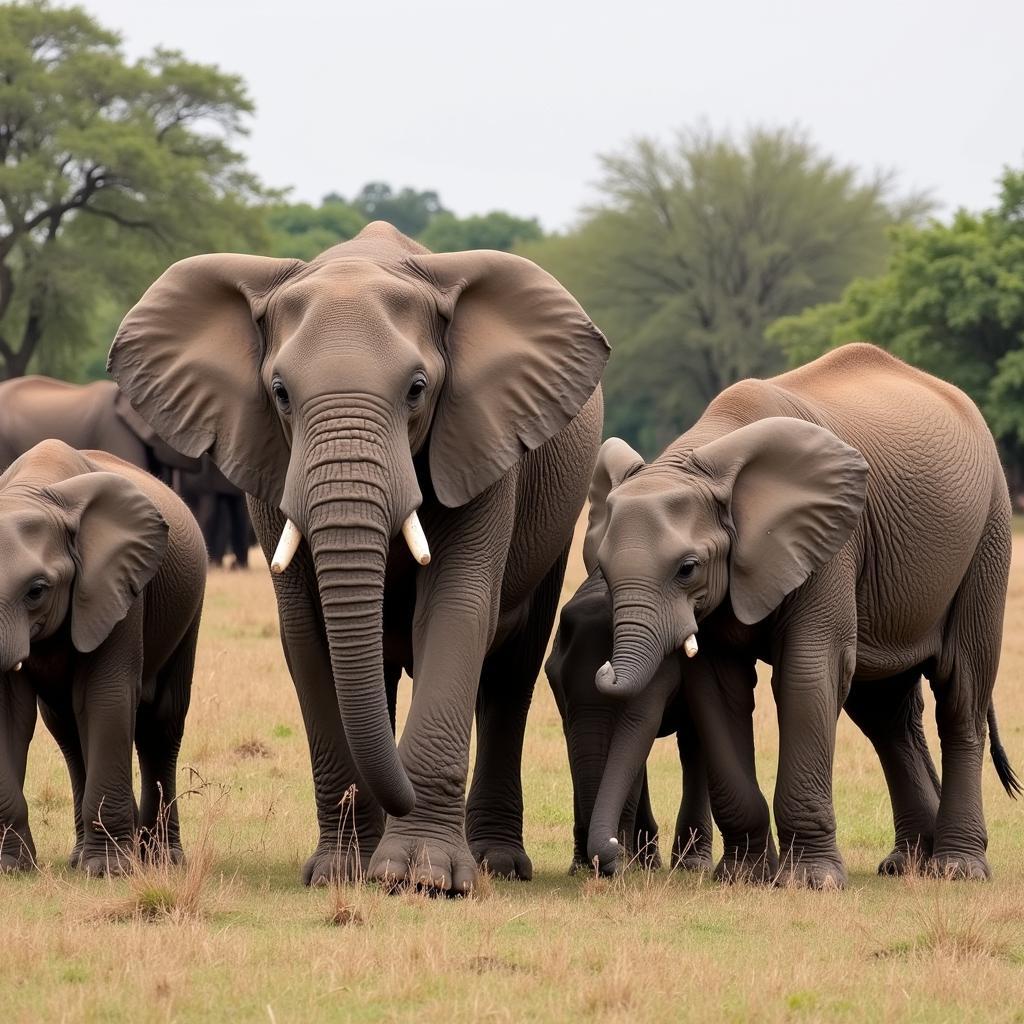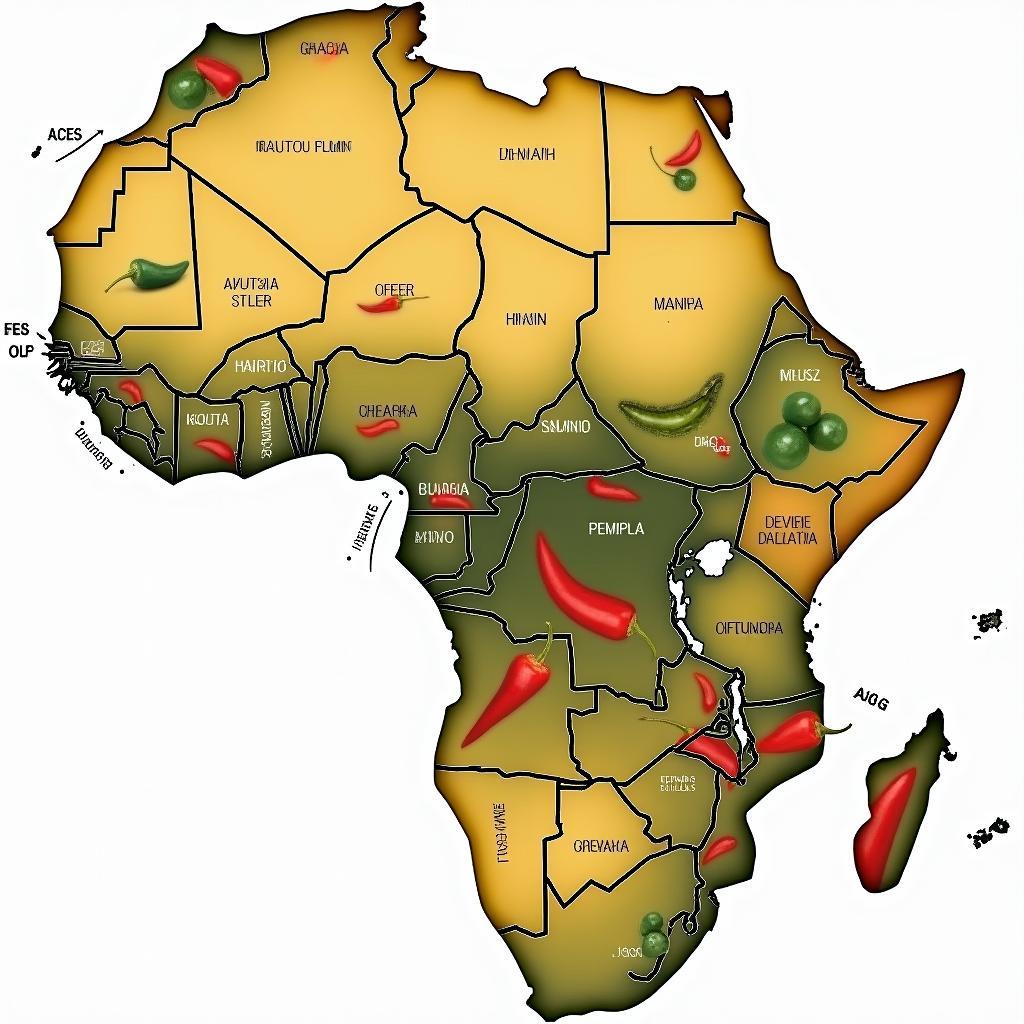African Elephant Weight Range: A Giant’s Tale
African Elephant Weight Range varies significantly, influenced by factors like age, sex, and subspecies. Mature African bush elephants, the larger of the two subspecies, can weigh between 4,000 and 7,000 kg, while forest elephants typically range from 2,000 to 4,000 kg. Understanding this weight range offers valuable insights into the lives of these magnificent creatures.
Unraveling the Factors Affecting African Elephant Weight
Several key elements contribute to the diverse african elephant weight range. Age, as in most mammals, plays a crucial role. Newborn calves can weigh up to 120kg, a staggering weight in itself, but a fraction of their eventual adult size. They undergo a rapid growth spurt during adolescence, gaining hundreds of kilograms each year. Sex also has a noticeable impact, with males generally being larger and heavier than females. This size difference is attributed to the competition between males for breeding rights, where size and strength offer distinct advantages. Finally, the subspecies also influences weight. African bush elephants, inhabiting the savannahs and grasslands, are larger than their forest-dwelling counterparts. This difference is likely due to variations in diet and habitat, where the open savannah provides more abundant food resources.
How Does the African Elephant Weight Range Compare to Other Animals?
The african elephant weight range places them firmly at the top of the terrestrial animal kingdom. No other land animal comes close to their impressive mass. To put it into perspective, a large bull elephant can weigh as much as six or seven average-sized cars. Even the smaller forest elephants are considerably heavier than most other land mammals. This immense size allows them to navigate their environments with surprising ease, pushing down trees, digging for water, and creating pathways through dense vegetation.
Why is Understanding the African Elephant Weight Range Important?
Knowing the african elephant weight range is crucial for both conservation and research efforts. It provides insights into their dietary needs, the impact they have on their environment, and their overall health. Understanding how factors like habitat loss and poaching affect their weight can help scientists develop more effective conservation strategies. Furthermore, studying weight variations within populations can reveal valuable information about their social structures and breeding patterns.
african elephant trunk plays a critical role in their feeding habits, allowing them to grasp and manipulate vegetation with precision. Similarly, understanding african height is essential for appreciating the sheer scale of these majestic creatures.
The Impact of Weight on Elephant Behavior
An elephant’s weight isn’t just a number; it significantly influences their behavior. Their immense size allows them to dominate their environment, shaping landscapes and influencing the distribution of other species. Their weight also affects their movement and social interactions. For instance, larger elephants often have an advantage in social hierarchies, influencing access to resources and mating opportunities. This contributes to the complex social dynamics observed within elephant herds.
 African Elephant Social Interaction
African Elephant Social Interaction
African Elephant Weight and Conservation
The african elephant weight range is a testament to their evolutionary success. However, their impressive size also makes them vulnerable. Poaching for ivory and habitat loss due to human encroachment are significant threats to their survival. Understanding their weight and how it relates to their overall health is crucial for developing effective conservation strategies. african elephant conservation status is a critical concern, and ongoing efforts to protect these magnificent creatures are essential for their long-term survival. The african buffalo wild life shares similar challenges, highlighting the importance of broader wildlife conservation initiatives. Moreover, even seemingly unrelated species, like the african fox mean, are part of the intricate web of African ecosystems, emphasizing the need for holistic conservation approaches.
Conclusion
The african elephant weight range is a fascinating aspect of their biology, offering valuable insights into their lives and the challenges they face. From their impressive growth rates to the impact of their weight on their behavior and conservation status, understanding this aspect is key to appreciating these magnificent giants and ensuring their future survival.
FAQs:
-
What is the average weight of an adult African elephant? The average weight varies depending on the subspecies, with bush elephants ranging from 4,000 to 7,000 kg and forest elephants from 2,000 to 4,000 kg.
-
How much does a baby elephant weigh? Newborn elephant calves weigh around 120 kg.
-
Why are male elephants generally larger than females? Male elephants are larger due to competition for breeding rights, where size and strength provide an advantage.
-
How does an elephant’s weight impact its environment? Their large size allows them to shape landscapes, influence vegetation distribution, and create pathways through dense areas.
-
Why is understanding the African elephant weight range important for conservation? Weight provides insights into their dietary needs, health, and the impact of threats like poaching and habitat loss, helping inform conservation strategies.
-
How does the african elephant weight compare to other African animals? African elephants are the heaviest land animals, significantly outweighing rhinos, hippos, and other large mammals.
-
What are some of the factors affecting the weight range of African elephants? Age, sex, and subspecies are key factors influencing the weight of African elephants.
For further information, explore these related topics on our website: “Understanding the African Elephant Trunk” and “Exploring the African Elephant’s Conservation Status”.
Need support? Contact us 24/7:
Phone: +255768904061
Email: [email protected]
Address: Mbarali DC Mawindi, Kangaga, Tanzania.




